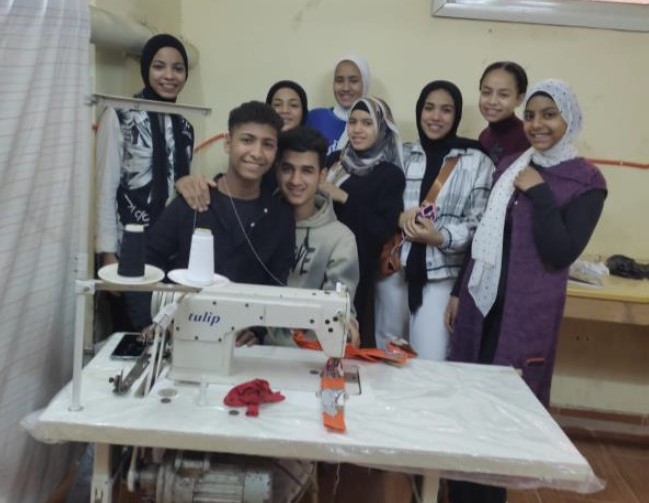
Egypt is faced with an extremely high inflation rate, with the cost of living, food and basic necessities increasing daily. The country's wealth is unevenly distributed, with over 75% of the population living in poverty.
The country is opening the door to loans from the World Bank for construction and reconstruction projects, while at the same time erasing human-related activities and development, in particular education, health and housing.
Due to the economic crisis, many children, boys and girls alike, have dropped out of school to enter the job market. They generally work in difficult conditions and in informal jobs, in stores, soap factories, clothing factories, etc., without any protection or care and with wages that are not sufficient to cover daily needs.
In this patriarchal system, the hardest hit are young women and girls, who are sidelined and marginalized in society and even within their own families. Many are excluded from the education system and sent out to work while still young, aged between 12 and 14.
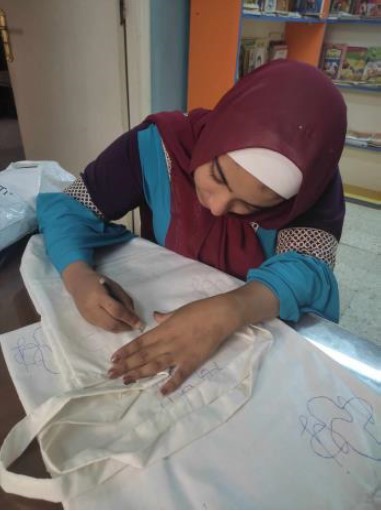
Rahma is 14 years old. She left the education system because of the difficult circumstances of life, and she is a member of a base group in the YCW Egypt. She works in a supermarket from 8 am to 8 pm, i.e. 12 hours a day, and in high season, working hours can be extended to 11 p.m., which means 15 hours of work a day, with only a half-hour break for lunch. Should workers become exhausted, there is a storage area where they can rest for half an hour... before returning to work.
Most young women work in the summer to support their family and meet their daily needs.
Learning a craft is a way to have income, opening the door to hope and a just and dignified life!
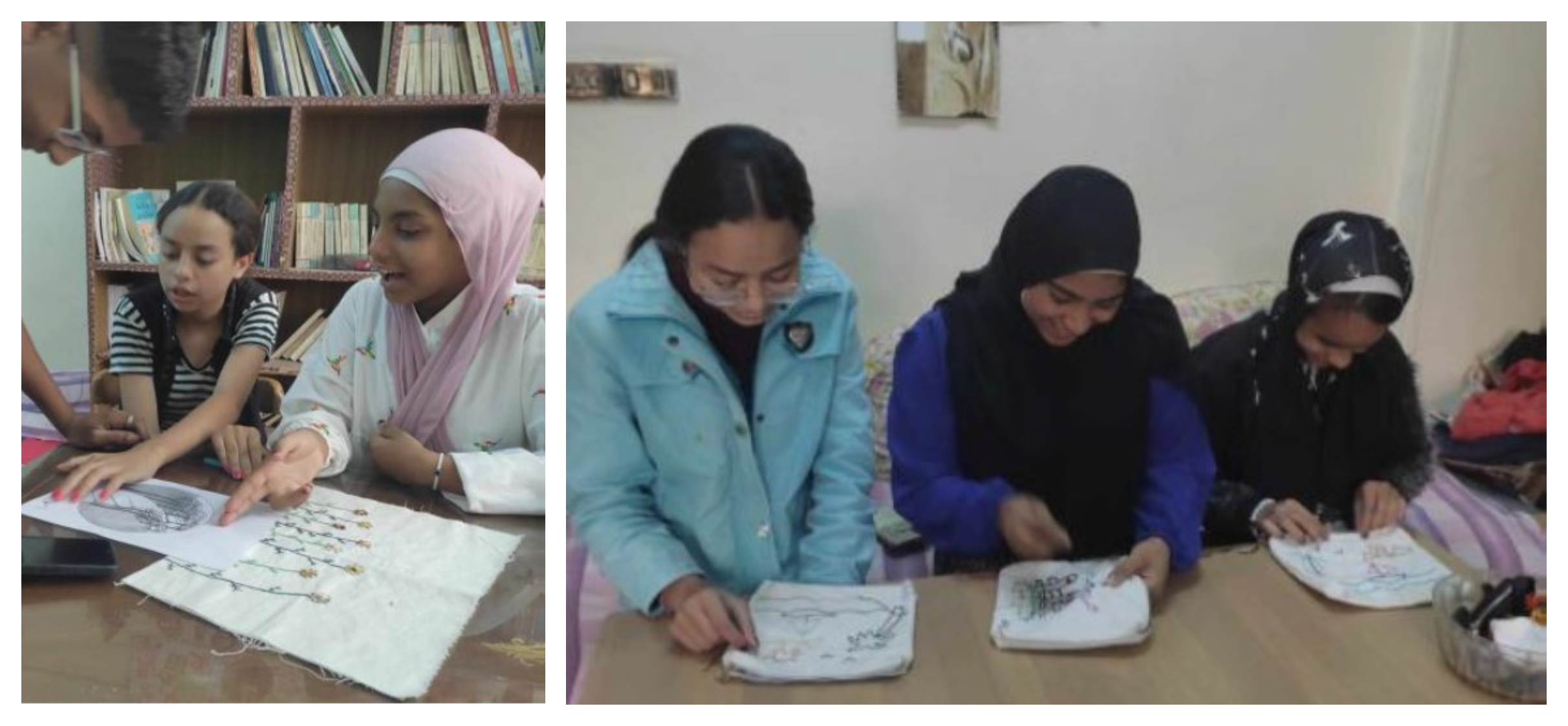
Women and girls, however, all have the same dream: to live and work in dignity. They long to find a special safe place for them to learn, speak and feel their importance and human value. They need to learn about their rights to choose and actively participate in the society. They need to understand their economic and social role. And this is exactly what the YCW project is all about!
This project, based on social and solidarity economy, started in March 2023 and is taking place in the small village of El Cheikh Moslah in the city of Qalyubia, 30 km north of the center of Cairo. Its aim is to empower young women between the ages of 14 to 22, training them in handcraft, art and needlework, raising their efficiency and integrating them into the labor market, allowing them to have a positive impact on the family’s economy.
Understanding the market and purchasing materials

First a visit was conducted to a state-organized handcraft exhibit to see the different market productions, discover other people’s experience, and communicate with the exhibit organizer for the future.
Embroidery materials like needles, threads and many fabrics were purchased as well as two sewing machines to start the project.
Training sessions on needlework, embroidery and macramé have been held, using available resources and recycling fabrics; workshops on sales practices as well as on the art of sewing and finishing have been conducted; and awareness-raising meetings on life issues (harassment, bullying, relationships, how can I influence society, adolescence, dreams, self-awareness and healthy meals) have been organized.
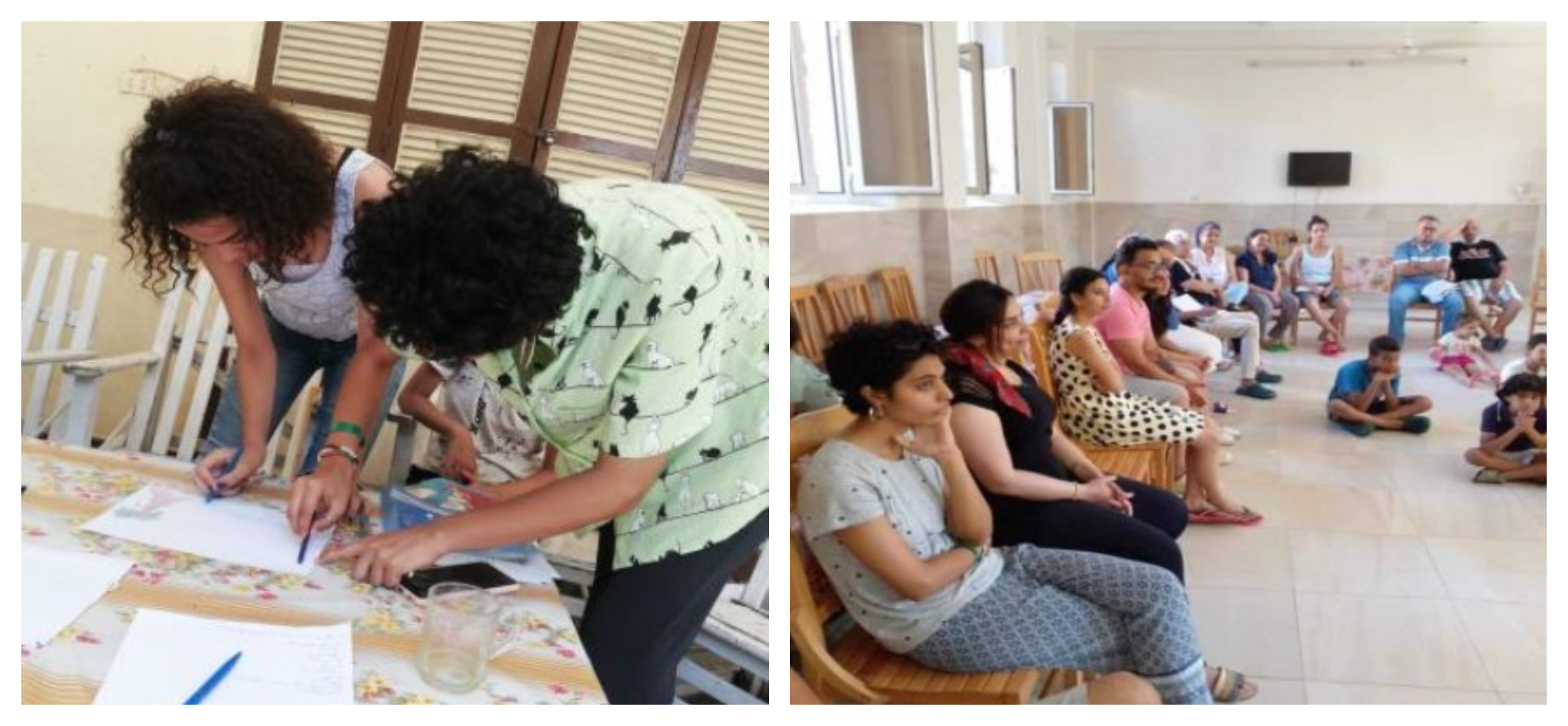
Recycling, repairing, and caring for the environment
During its summer camp in July 2023, the YCW had an in-depth debate on the environment and the impact of the different kinds of pollution. After the camp, it launched a campaign to say “NO for plastic” and from there surged the idea of producing and selling low-cost cotton bags, raising awareness of the damage caused by plastic and promoting the use of environmentally-friendly material.
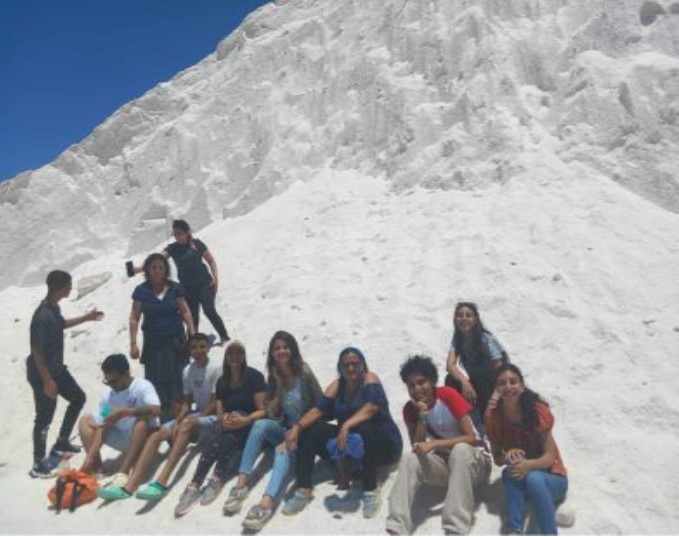
Those young women create their own designs for cotton bags and receive a small amount for their work every month.
The group is not only producing cotton bags: it also recycles a lot of jeans and uses them to produce pencil cases, and it repairs old shoes. The idea is to use every material they have.
A new small community where friendship and solidarity prevail
“My name is Noor, I am 15 years old, and I am the youngest member of my family. I am happy that I am being part of this group where I can develop my embroidery and sewing skills as well as getting some income to support my family. Since my father died it is only my oldest brother who is working for our family. This small contribution I am getting from this project is a big help for me and my family. Moreover, I am very happy because we are also developing our friendship, self-confidence, and we are also becoming aware of our situation and the situation of others in our community. This space is important for us to share our situation, our dreams, and what we want to do. For me, our group has become a community of love, friendship and solidarity.” – Noor Ehab (YCW Egypt)
Alongside sewing and embroidery, the young women and men of the YCW expressed the need to learn English. To this end, the movement set up an English course twice a week for 5 months to learn basic English, develop their education and invite their friends to join in.
The movement wants to continue the project, reach out to more young women and buy more sewing machines. It is intending to extend the action to other groups with the same needs and to increase the support to families by teaching motivated mothers to embroider, providing them with an opportunity to have a job and increase their family’s income.
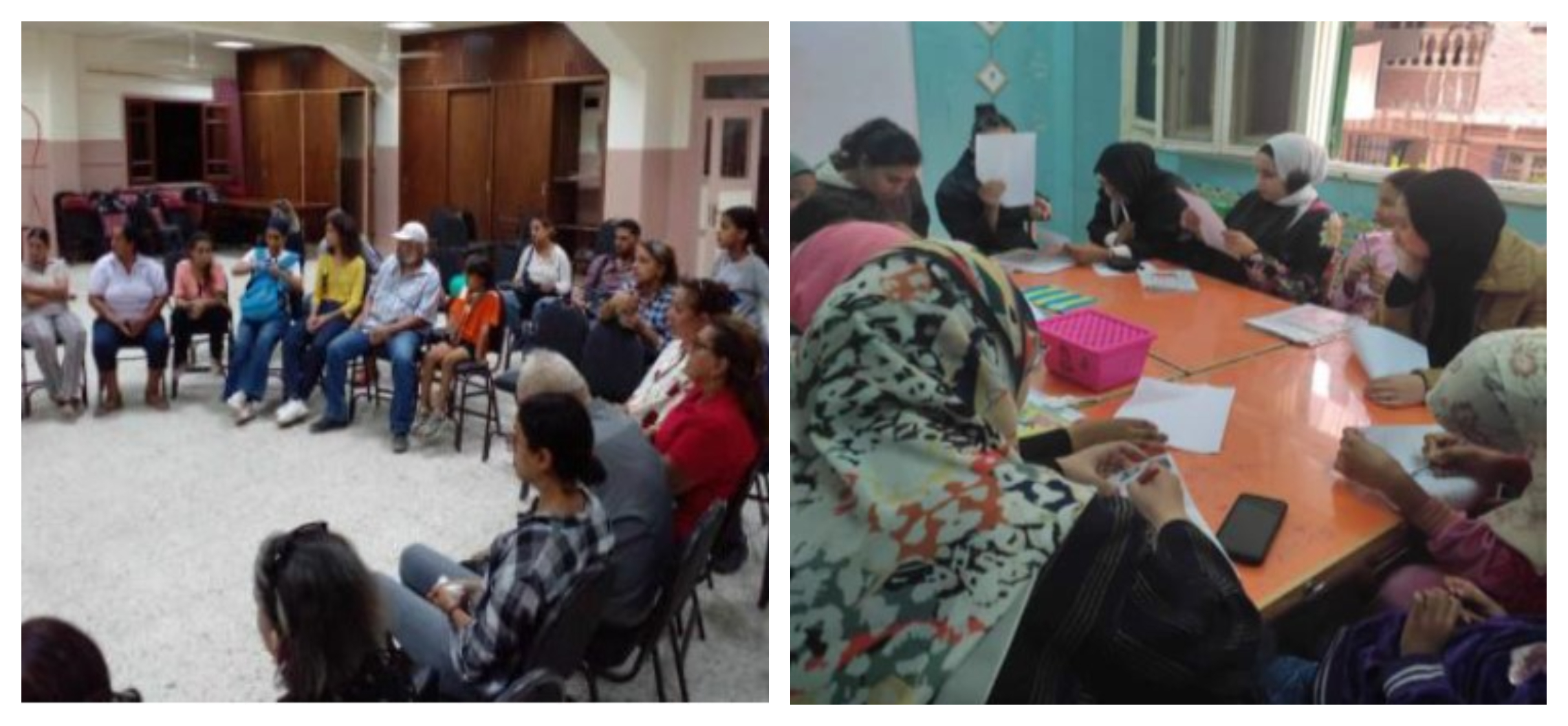

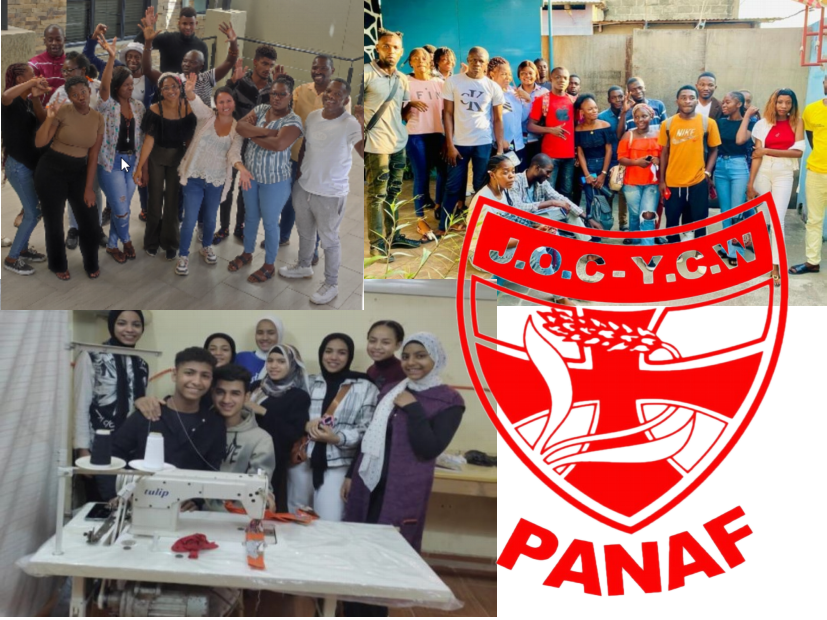

 English
English  Español
Español  Français
Français